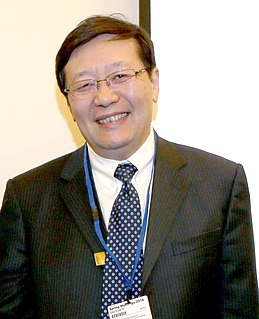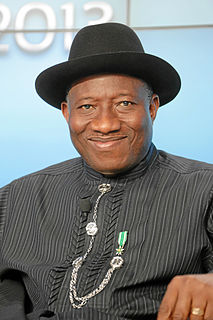A Quote by Hu Jintao
China will stay firmly committed to the basic state policy of opening-up. We will actively and effectively use foreign investment, improve its structure, diversify its form and open up more channels and sectors so as to facilitate investment.
Related Quotes
In fact, it is the dictatorship's policy that isolates the people of Burma while it reaches out to different countries every year and opens new embassies around the world. It is the dictatorship's policy that kills civilians and makes people poor. As long as the dictatorship is in power, foreign trade and investment in Burma will not benefit people. Instead, it will end up fueling the oppression in Burma.
I do believe that India needs a lot more foreign direct investment than we've got, and we should have the ambition to move in the same league many other countries in our neighborhood are moving. We may not be able to reach where the Chinese are today, but there is no reason why we should not think big about the role of foreign direct investment, particularly in the areas relating to infrastructure, where our needs for investment are very large. We need new initiatives, management skills, and I do believe that direct foreign investment can play a very important role.
I've never believed protectionism of that kind will lead us anywhere. I think you can have certain specific rules for engaging with India.. for example, not allowing mineral resources to be taken out of the country.. but there is not a shred of doubt in my mind that when you open an economy you should do it in totality. Foreign investment adds a sense of competition; we should see this as a wake-up call to modernise and upgrade. Companies that do not will undoubtedly die.












































